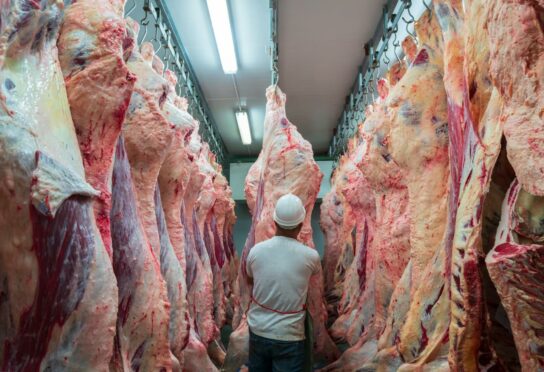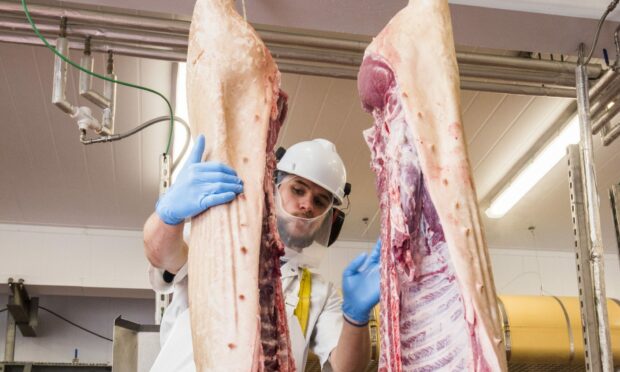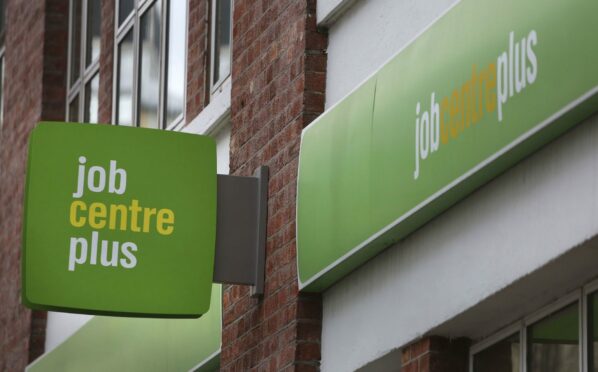Scottish red meat processors have accused Westminster of leaving them to “fight a lone battle” to find enough skilled workers while warning of a potential “explosion” in retail prices for meat at some point in 2022.
The Scottish Association of Meat Wholesalers (SAMW), which represents abattoirs and meat companies across Scotland, has renewed its calls for the UK Government to find a long-term solution to the labour shortage affecting the sector.
The association says the “lack of a workable and practicable” visa scheme for businesses to recruit skilled staff from EU countries has put Scotland’s red meat sector in an extremely challenging position as it enters 2022.
“Maintaining our workforce at a level that keeps the business viable has been the overwhelming concern for my members throughout the year and, with virtually no real help available from Westminster, businesses have been left on their own to fight a lone battle to find skilled workers,” said SAMW president, Alan McNaughton.
“I include the emergency visa arrangements that were put in place in October this year in my criticism.
“This so-called temporary solution completely missed the point in the first place and hasn’t delivered to any significant degree in the two months since being in place.”
The measures Mr McNaughton refers to were short-term visas introduced to help meat companies – in particular those operating in the pig and poultry sectors – tackle staffing shortages.
It came on the back of warnings of turkey and pigs in blanket shortages at Christmas and more than 100,000 slaughter-ready pigs facing the prospect of being culled and destroyed on farms due to a lack of staff in pig abattoirs and processing plants.
Mr McNaughton said the industry needed a long-term solution, rather than a “sticking plaster response” to get it through the busy Christmas and New Year period.
“Frankly, it didn’t deliver in the short-term and is unlikely to be any better next year,” added Mr McNaughton.
“As such, the early months of 2022 will be dominated by continuing labour supply problems, accompanied by rising costs from all quarters.”
He said high demand for labour had driven up wage costs and this, coupled with rising energy and compliance costs, was placing an “unsustainably high” cost burden on SAMW member businesses.
“A market correction is looming, which may well mean that an explosion of costs and prices at the retail level will be inevitable at some point in 2022 with processors, wholesalers and retailers being forced to apply cost increases to their end products,” added Mr McNaughton.
A UK Government spokeswoman said measures were in place to help the sector recruit overseas workers.
She said: “Poultry butchers, processors and dressers are all eligible for the Skilled Worker visa route under the Points Based System and have been since December last year.
“These workers can be sponsored for up to five years and there is no cap on numbers.”
The spokeswoman added: “We also encourage the sector to make employment more attractive to UK domestic workers through offering training, careers options and wage increases – and utilise the Find A Job website, where businesses can upload and manage their vacancies.”
Earlier this week the labour issue was raised in the House of Commons Environment, Food and Rural Affairs (Efra) committee, with committee chairman Neil Parish MP telling Immigration Minister Kevin Foster that the Government had been “hugely slow” at dealing with the crisis.
In the exchange, Mr Parish said: “It’s a very open secret there have been huge problems between Defra and the Home Office in getting the number of people we need here.
“You’ve been hugely slow at getting everything in place and then you blame everybody else when it goes wrong.”
Efra committee member and MP for Angus, Dave Doogan, said: “Ambivalent indifference from the Home Office is exactly what the farming industry have become used to but the arrogant superiority of the Whitehall bureaucracy took me and other members of the select committee genuinely by surprise.”


